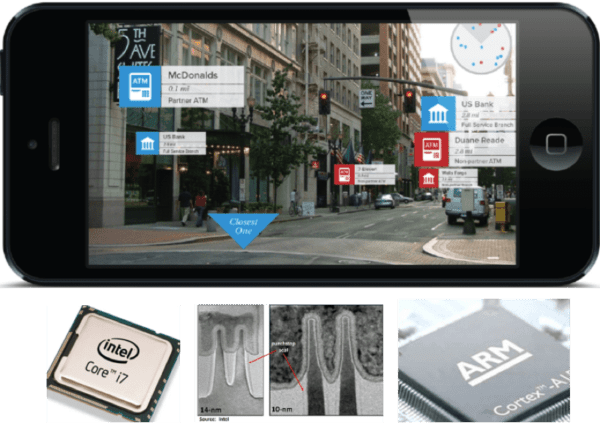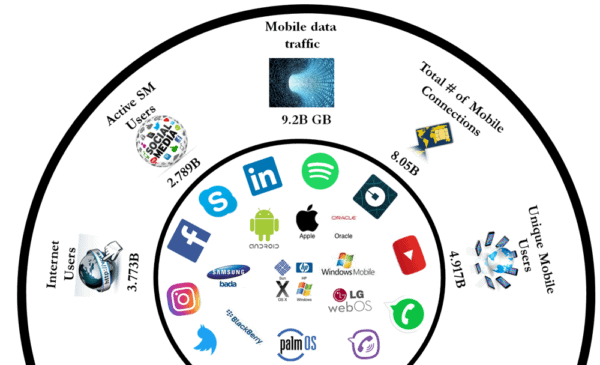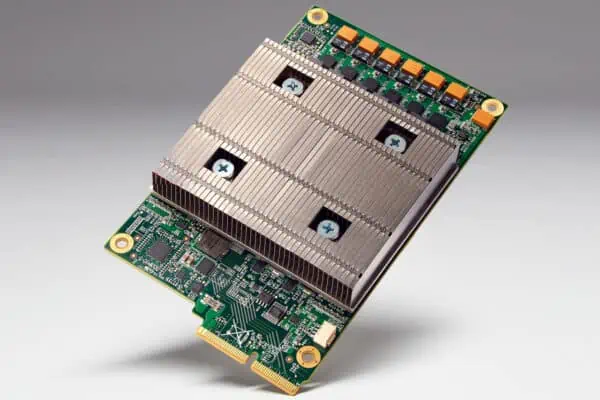Sign up for our newsletter!
Your data will be handled in compliance with our privacy policy.
Your data will be handled in compliance with our privacy policy.

This is the second article in a series of three in which Smoltek founder and strategic advisor Shafiq Kabir share his personal thoughts on nanotechnology opportunities. In the last article, he addressed the hype surrounding carbon nanotechnology. In this one, he takes you into the reality of the nanotechnology entrepreneur. He tells you about real challenges that await breakthroughs that carbon nanotechnology can help within the near future.
We all are living in a connected world. We and everything surrounds us for that matter is connected or at the verge of connecting to the extent that we are witnessing a world within a world! Let’s dive into my naive way of looking at the reality as a nanotech entrepreneur and how the opportunities for nanotech startups are emerging.
In less than a generation, we have been equipped with so many gadgets that we have started losing count on them. Technology has modernized us to the extent that we have become habituated to many gestures so heavily that we consider many functions as granted as breathing air! For example, we are so used to the smartphone touch screen that sometimes in our unconscious mind we try to touch as soon we find a display, swipe our old computer monitor or even TV for changing a screenshot or channel!
The original hardware platforms manufacturers like Intel, Samsung, Fujitsu, Qualcom, Cisco, Ericsson, Nvidia etc. have enabled the monumental progress of the software which in turn created a gigantic software industry. The youngest player of the game ARM have revolutionized the mobile devices through their ARM processors specifically designed for handheld mobile devices. Company like Microsoft, Oracle, Apple, Nokia and Samsung undoubtedly not only exploited the hardware to build software platform on top, but also have pushed different technologies through higher demand on memory, processor clock speed, enablement from only talk to touch screen smartphones and other handheld devices.

Such progressive hardware platform has also had empowered a new breed of entrepreneurs creating a bunch of highly successful software giants like Google, Facebook, PayPal, Twitter, LinkedIn, Youtube, Airbnb, Alibaba, Amazon, eBay, Skype, Spotify, Viber, WhatsApp, Uber, Snapchat and a limitless list can continue. Proliferation of hardware has also helped in adoption of wellness tracking, and virtual medical care solutions. Dramatic progress in sensor manufacturing in turn enabling self-driving vehicles and artificial intelligence (AI) with view, touch and more senses.

So far the existing hardware platform was sufficient to witness the proliferation of software industry. However, as the software industry is progressing well beyond its imaginations, and these software giants are able to connect billions of people and generating trillions of data out of the software ecosystem leading the supporting hardware to bleed and face tsunami of difficulties to coup up with in terms of speed, bandwidth, power management and more.
Hence hardware technology is unfortunately reaching to its limits or going out of steams or becoming more expensive instead of being economical.
Even bitter news, as it looks this data bandwidth demand will be fueled further up by the push of Internet of things (IoT), smart inventory, smartcity, Robotics, virtual reality (VR), augmented reality (AU), artificial intelligence (AI), brain read, autonomous driving, biomimetic recognition, human-machine (HI-AI) interactions and finally perhaps the internet of things (IoE).
These applications undoubtedly creating tremendous stress on the existing hardware platform not only to be largely revamped but also to be complemented with a lot of /quoutiny little sensors, wireless modules and self-sustaining power management.
Therefore, with no surprise, we witness a shift in hardware platform moving from general purpose to application specific hardware acceleration. A perfect example of how the software industry today is shaping the future of hardware industry is the introduction and implementation of tensor processing unit (TPU) . Fascinating enough, the TPU is not developed by the world largest hardware foundry, but by the largest software industry Google! The developed TPU legitimately performs operations > 15× faster than existing central processing unit (CPU) or graphics processing unit (GPU) in the market.1
Great software shines even brighter with great hardware underneath it
Norm Jouppi, Google
Indeed, Google is taking the lead in hardware accelerations by developing its proprietary tensor processing units (TPU), system on a chip (SoC) etc.! Apple, repeatedly disappointing hardware chip design companies by changing their model from outsourced towards in-house hardware design.2 The other software giants will soon join the club.

Obviously it is no longer enough to collect & store gargantuan amount of data to the cloud, the system need to be intelligent enough to be able to analyze and generate patterns, trends, probability etc. to be able to navigate real time activities or perhaps to monetize from the big data. Such scheme however requires sophisticated algorithm and a lot of computing power to be quick enough to help with data crunching, demands quick analysis and turning data into some kind of intelligence so that real time decision making can be made by AI!
Companies like Wallmart would like to equip their shops with a lot of sensors all around to enable IoT inspired customer services.3 Such ginormous implementation undoubtedly will boost customer satisfaction as well as will be excellent trigger for waste management.
However, to add some oil to the fire, most of such hardware need to become tiny, slick, self-powered/power efficient, economical, sustainable and environmentally friendly etc. etc. etc. Therefore, the need for miniaturization of hardware, nanotechnology and nanomaterials come into play.
What makes the situation for the nanotech startups so compelling for hardware platform makers is that VR, AI, IoT, smart inventory, machine learning opportunity is unfolding at a time when the market for traditional technology is either flattening or running out of steams to support the market demand in data acquisition and analysis. We are undoubtedly witnessing an inflection point for the most developed and exploited CMOS technology leading to the collapse of decades of standard ITRS roadmap (≈ a paradigm shift ≈ any technology adoption can happen scenario ≈ hardware acceleration). Therefore, opportunities emerge now for the nanomaterials startups.
In the next and final article my dive will be on ‘the future’ where we may find the invasion of nanotech and nanomaterials to impact in revamping future of hardware and hence will dramatically help to unleash the power of internet of everything!
Your data will be handled in compliance with our privacy policy.